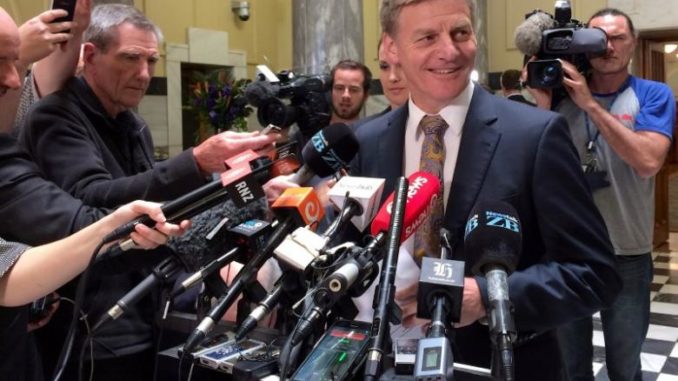
WELLINGTON (Reuters) – New Zealand’s new prime minister Bill English announced his cabinet on Sunday, introducing four new faces and rejigging his inner leadership group.
After popular leader John Key’s surprise resignation, the National Party had a chance to refresh its line-up of senior politicians as the government prepares to battle for a fourth term in an election due around September 2017.
English, former deputy premier, was confirmed as prime minister on Dec. 12, one week after Key announced he was stepping down after eight years.
The prime minister told reporters his “refreshed” cabinet builds on Key’s success and “provides a mix of new people, alongside experienced ministers either continuing their roles or taking up new challenges”.
Paula Bennett was named earlier as deputy prime minister. She has been given five cabinet portfolios: women’s affairs, tourism, police, climate change and state services.
Steven Joyce, senior cabinet minister under Key, becomes finance minister and infrastructure minister.
Transport Minister Simon Bridges retains that portfolio, and also becomes economic development minister and associate finance minister.
Murray McCully, foreign minister for eight years, will remain in that position until retiring from it on May 1.
English, who 13 years ago oversaw an election loss for the National Party to the centre-left Labour Party, takes the reins of a country in good economic shape compared with much of the developed world.
For April-June, New Zealand reported annual economic growth of 3.6 percent, compared with 3.0 percent the preceding quarter.
Third-quarter data will be reported on Dec. 22.
The new leader indicated a “stock-take” of the centre-right National government’s policy. He has not signalled any specific changes aside from declining to commit to Key’s vow that the retirement age would remain 65.
(Reporting by Charlotte Greenfield and Harry Pearl; Editing by Richard Borsuk)











